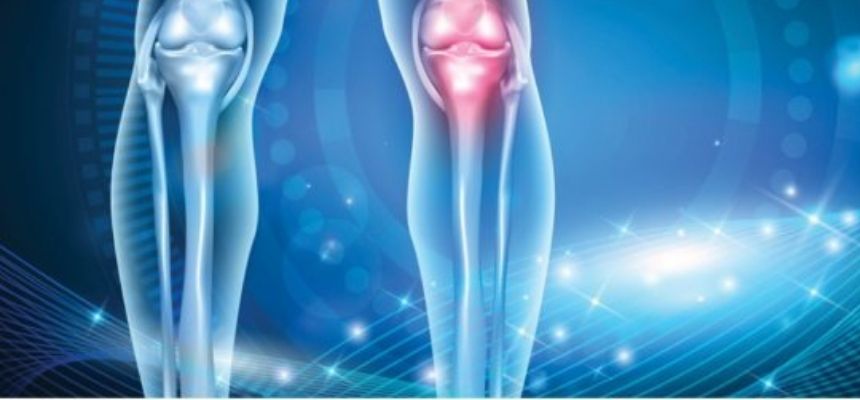National Bone Joint Day on Aug 4th

Bone health is one of the most neglected aspects of healthcare in India. According to a report published by the International Osteoporosis Foundation in 2013, approximately 80 percent of the urban Indian population is vitamin D deficient.In 2012, the Indian Orthopaedic Association (IOA) announced that 4 August 2020 will be observed as Bone and Joint Day with a focus on promoting awareness about bone health.
.jpg) This year the theme of the day is ‘prevention of deformity in degenerative diseases’. The degenerative disease of bones is medically known as osteoarthritis, which affects mostly middle-aged and older people.Osteoarthritis is a condition which can affect different joints of the body but usually targets the weight-bearing joints such as knees, hips and ankles. The person may complain of painful stiff joints which may swell up sometimes. The swollen joints can either be hard and wobbly (due to growth of extra bone) or can be soft (due to thickening of the joint lining) says "Dr. Rajesh Kumar Reddy,Consultant Orthopaedics, KIMS Saveera, Ananthapur.
This year the theme of the day is ‘prevention of deformity in degenerative diseases’. The degenerative disease of bones is medically known as osteoarthritis, which affects mostly middle-aged and older people.Osteoarthritis is a condition which can affect different joints of the body but usually targets the weight-bearing joints such as knees, hips and ankles. The person may complain of painful stiff joints which may swell up sometimes. The swollen joints can either be hard and wobbly (due to growth of extra bone) or can be soft (due to thickening of the joint lining) says "Dr. Rajesh Kumar Reddy,Consultant Orthopaedics, KIMS Saveera, Ananthapur.
Ways to prevent osteoarthritis
There are certain simple ways in which a person can prevent osteoarthritis, some of them are:
1. Maintain a healthy weight: Obese and overweight people are at an increased risk of getting this disease as their joints (especially the knees and hips) are under extra load and stress. It is believed that with each extra kilogram of the body weight, the compression over the knees increases by 2 to 4 kilograms.
2. Eat healthy food: Your diet should contain the appropriate amount of nutrients which are necessary for maintaining proper bone and joint health. This includes calcium, vitamins D and C, phosphorus and proteins. Among all these, calcium is the most important mineral, necessary for the growth and development of the bones. You can add calcium to your diet by adding food items such as milk, cheese and other dairy products or you can take supplements as well. If you don’t get enough sunlight, you will have to take vitamin D supplements for the absorption of calcium in the body. On average, an adult should consume 800 to 1000 international units of vitamin D per day.
3. Exercise regularly: In order to keep your joints healthy, you must indulge in weight-bearing exercises which require bones and muscles to work against gravity and resistance, thus improving their strength. Exercising regularly not only helps in improving the range of motion, flexibility and function of the joints but also helps in maintaining a healthy weight. It is necessary to have an exercise programme to strengthen the muscles especially quadriceps and hamstrings for patients who have osteoarthritis of the knee joint. Exercise should be avoided if there is severe inflammation in the joints.
4. Practice yoga: Various studies have shown that yoga helps in improving the mobility and function of the knees, thus reducing the joint pain. Yoga helps in building muscle strength, increases the range of motion and improves balance. Since yoga does not involve vigorous exercises, it is also safe for patients of osteoarthritis.
5. Do not overuse your joints: While eating healthy and exercising regularly is necessary for joint health, preventing the exhaustion of joints is equally important. Continuous bending of knees, frequent squatting, sitting cross-legged or kneeling for a long time can increase the risk of osteoarthritis of the knee. Try to avoid overdoing all of these postures to prevent over-working the joints

 Disclaimer: Welthi.com does not guarantee any specific results as a result of the procedures mentioned here, and the results may vary from person to person.
Disclaimer: Welthi.com does not guarantee any specific results as a result of the procedures mentioned here, and the results may vary from person to person.









